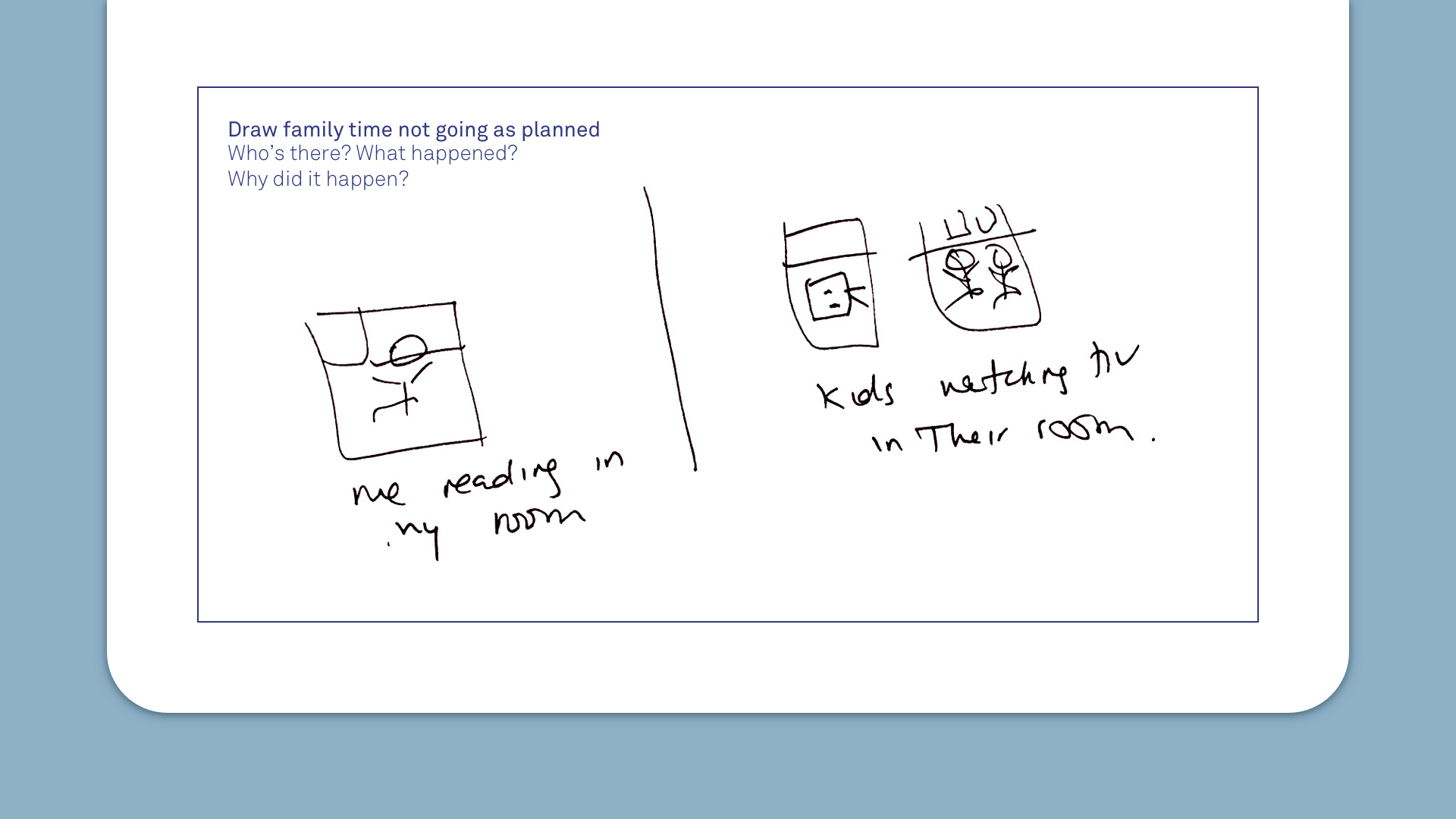OVERVIEW
As part of my graduate thesis, I held a workshop to learn more about how low-income parents in New York spend their time together. Working collaboratively with these parents, we identified opportunity areas that later informed my thesis.
MY ROLE
Facilitator
RESPONSIBILITIES
Creating designed material, facilitating the workshop, framing questions, and coding the results.
TIMELINE
This workshop took place over 2 weeks between November and December, 2018
THE PROBLEM
Family time becomes difficult with limited resources
Parental engagement leads to more positive results among children, however, kids of low-income have less positive engagement with their parents due to poverty related stressors.
THE GOAL
Discover behaviours and attitudes about family time
The purpose of this workshop was to glean important insights about family life for low-income families. As part of this research, participants generated ideas collaboratively in order to help inform design decisions for further product development.

DEFINITION
Visualizing quality time
Participants were first asked to fill out a worksheet individually. They were prompted to define quality time in their own terms. They marked when it happens, sketched what it looks like, stated the prerequisites, and admitted the challenges they face to achieve it.
After defining quality time, each participant listed out the sequence of significant events that occurs in their family during a typical school day.


MAPPING
Identifying common ground
Once the worksheet was complete, participants transferred their answers to stickers and placed each sticker respectively on a timeline. The blue stickers represented their own actions and the yellow stickers described the actions of their children.
In groups of 2, the participants shared each other’s stories and worked together to identify areas during the day where new opportunities for family time may exist.

OPPORTUNITY AREAS
Stressful Mornings
Parents were consistently overwhelmed in the mornings and tired in the evenings. These emotions had an effect on the quality of time they spent with their kids. Although these are both times parents and children spend together, none of the parents labeled it family time.
—How might we make mornings an opportunity for meaningful interaction?
One of the participants came up with an idea to start each morning with a predetermined probe. What did you dream about last night? What’s your biggest challenge today Building off this idea, we identified touch points on each map where moments of engagement might exist.
Unpredictable Schedules
Shift work made most weeks unpredictable. Last minute call-ins and late shifts often compromised family time and harmony. One parent worked primarily on weekends and rarely experienced mutual time off with his kids.
—How might we create predictable routines out of unpredictable situations?
This insight led us to have a discussion about creating “weekends during the week” even if kids have school the next day.
MFA THESIS
Closer Kin
This project was conducted as part of my MFA Thesis,
Closer Kin: Building Stronger Family Environments by Design at
SVA Products of Design.



